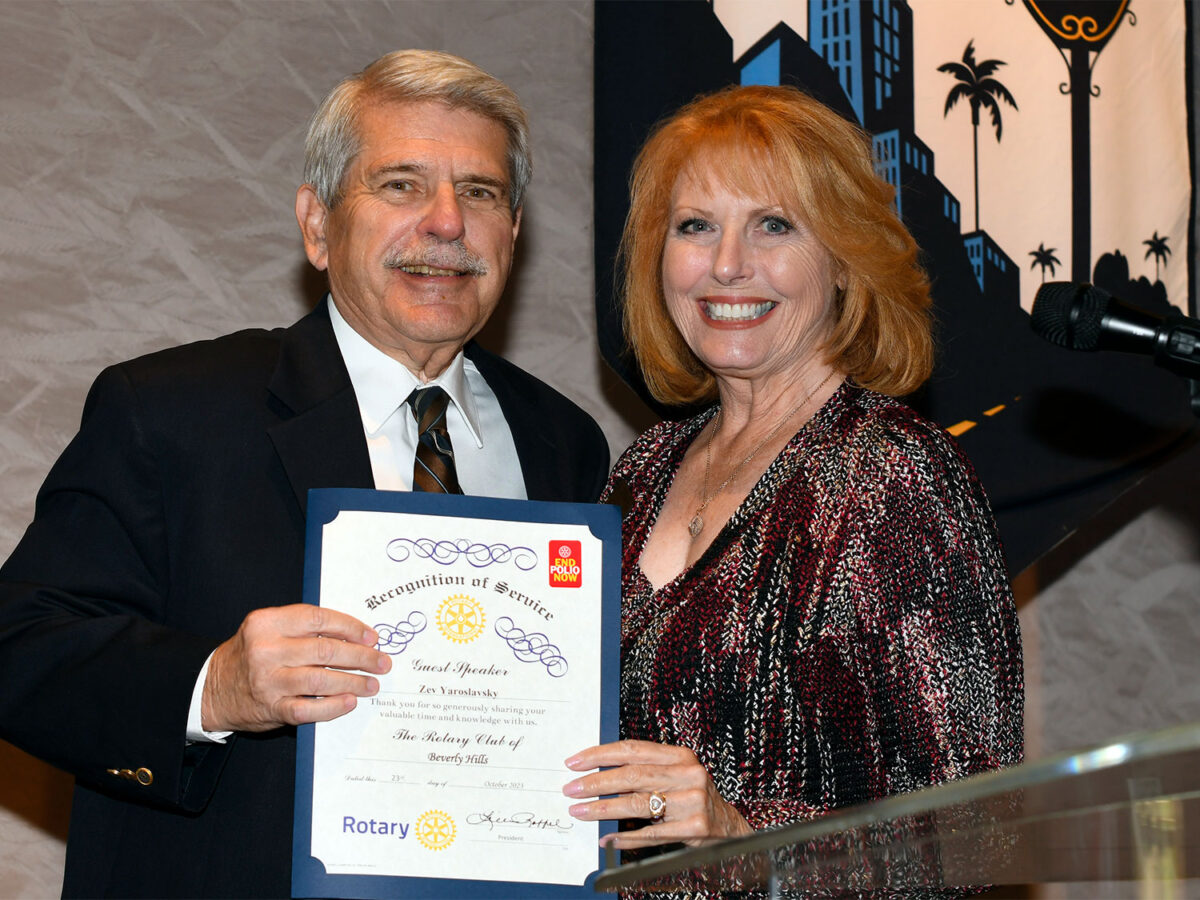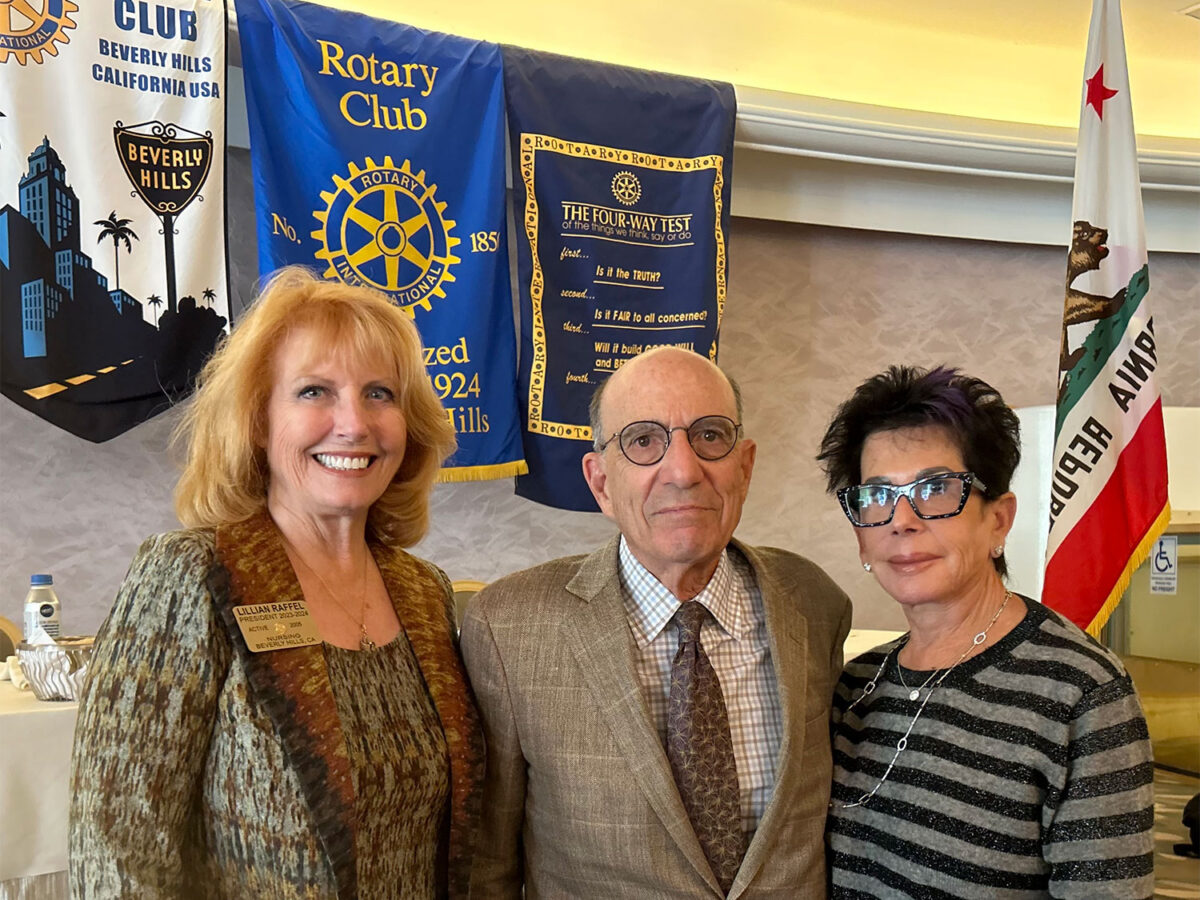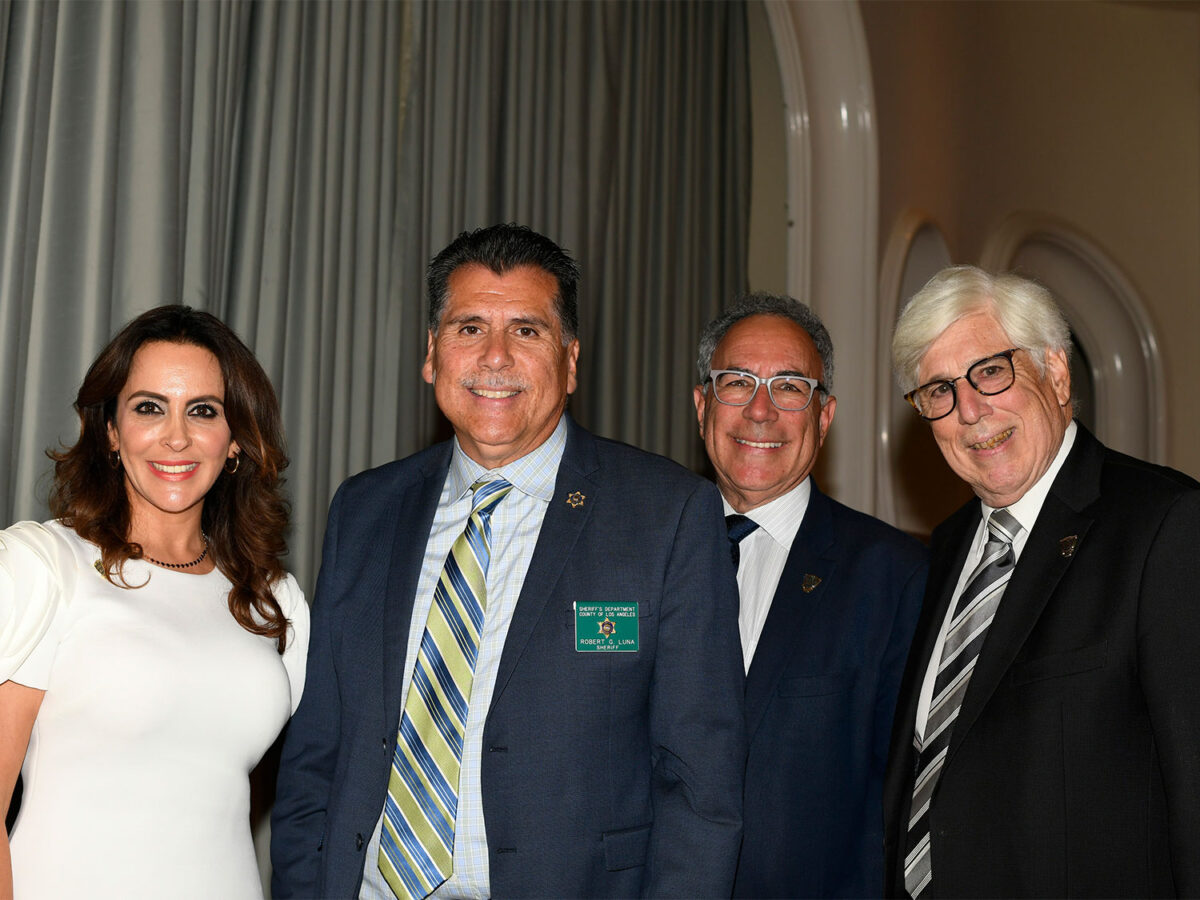The Rotary Club of Beverly Hills welcomed California State Assemblymember Rick Chavez Zbur as its luncheon speaker on Sept. 18. Zbur was elected in November of 2022 to represent the 51st Assembly District, which includes Beverly Hills, Santa Monica, West Hollywood and portions of Los Angeles. The Assemblymember spoke candidly about the challenges, surprises and accomplishments of his recently completed first legislative session. It is one he came to with an impressive background. A native of the Rio Grande Valley in New Mexico, Zbur was the first in his rural community to attend an Ivy League university. After graduating from Yale University and Harvard Law School, he moved to Los Angeles in 1985.
Zbur practiced law at Latham and Watkins, and later served as an Executive Director of Equality California, the nation’s largest statewide LGBTQ+ civil rights organization. He also served for 20 years as a board member of the California League of Conservation Voters, now renamed California Environmental Voters and was its president for six years.
Zbur opened his remarks by describing himself as a “pro-business progressive,” a shrewd tactic considering his audience. But first, Zbur laid out his three primary issues of concern: homelessness and the housing crisis, climate change and civil rights.
Returning to the pro-business topic, Zbur spoke of his efforts to extend the film tax credit to “keep Hollywood in Hollywood.” He described his work on a bill focusing on offshore wind, and the need to make sure new jobs in that industry remain in California.
Public safety and retail crime are also areas of concern. Zbur noted that he had spent time this year with elected officials in Beverly Hills discussing those topics.
“I’ve asked the Speaker of the Assembly to allow me to chair a new Select Committee on retail crime and so that’s something that I’m going to be tackling. We really do need to sort of stop these smash and grabs in our small businesses,” Zbur observed.
Returning to his three core issues, Zbur brought up the California Housing Security Act, a bill directed at preventing homelessness. It provides for housing assistance of up to $2,000 a month for those with high amounts of housing insecurity.
“Veterans, former foster youth, people living with disabilities, people that are unemployed and people that were homeless are among the groups that this would focus on,” said Zbur.
The goal of the legislation, he said, is “to really start focusing on how we prevent homelessness and stop that sort of pipeline into homelessness.” He noted that this bill and another one that helps foster youth stay housed will both provide results that are not only compassionate, but more cost effective than other alternatives.
On climate change, Zbur noted that in addition to alternative energy such as offshore wind, he supports incentives for apartment owners, commercial offices and cities to provide more electric automobile charging in their areas.
Finally, on his third core focus—civil rights—Zbur expressed pride in the passage of the Safe and Supportive Schools Act. The law requires that every teacher and school staff in grades seven through 12 have at least one hour per year of LGBTQ cultural competency training.
“The bill was very controversial because it was mischaracterized by opponents. Four out of 10 homeless youth are members of the LGBTQ plus community; LGBTQ plus kids drop out of school at a rate that’s four times higher than the non-LGBTQ kid. We sort of know what’s happening. I mean, often we’ll have folks that are facing bullying or lack of support in their communities, or sometimes lack of support in their own home,” noted Zbur.
He also spoke with great concern about the rise of antisemitism.
“I’m not a member of the Jewish community, but I am a member of the Jewish Caucus of the legislature, which I’m very proud of. I was invited to join because of representing the mosaic of what constitutes the Jewish community,” he said.
He described successes in preserving funding for security grants to temples and Jewish nonprofits and institutions, as well as places such as Planned Parenthood and others that are targets of hate-based violence.
In closing, the Assemblymember then turned to the fentanyl crisis, whose devastating impact knows no jurisdictional or economic boundaries.
“We did pass a number of important bills this year. One increases both the penalties for the folks that are making the decisions to put that out onto the streets,” said Zbur.
He added, “I’m a parent. I have a 19-year-old daughter and two 15-year-old twins and it really scares the heck out of me. I worry that they’re going to do something where they inadvertently think that they’re taking a Xanax, and it’s something that’s counterfeit, and it’s actually laced with this poison. That is something that I know is going to be a big priority for the new speaker and one of mine in the next cycle.”
He concluded on a philosophical note.
“I had a great career at Latham and Watkins and at Equality California. My dad dropped out of high school and then became very politically active when I was a kid. He said, ‘Ricky, you know, you have to focus on electing people that are going to do the right thing for people in our communities.’ And I became interested in politics when I was a kid. And then as I got older and as a gay man, I just sort of set all that aside. In those days, when I was coming out of college, you didn’t have gay people that were elected to office.”
Times fortunately have changed. Zbur was recently named the new Democratic Caucus Chair for the Assembly.
“It is one of the top three leadership posts in the Assembly, so it’s really an honor to be named in my freshman year,” said Zbur. “It’s a pretty important job. I’m really looking forward to it. It will allow me to have more of a voice in terms of what the Assembly does next year.”







